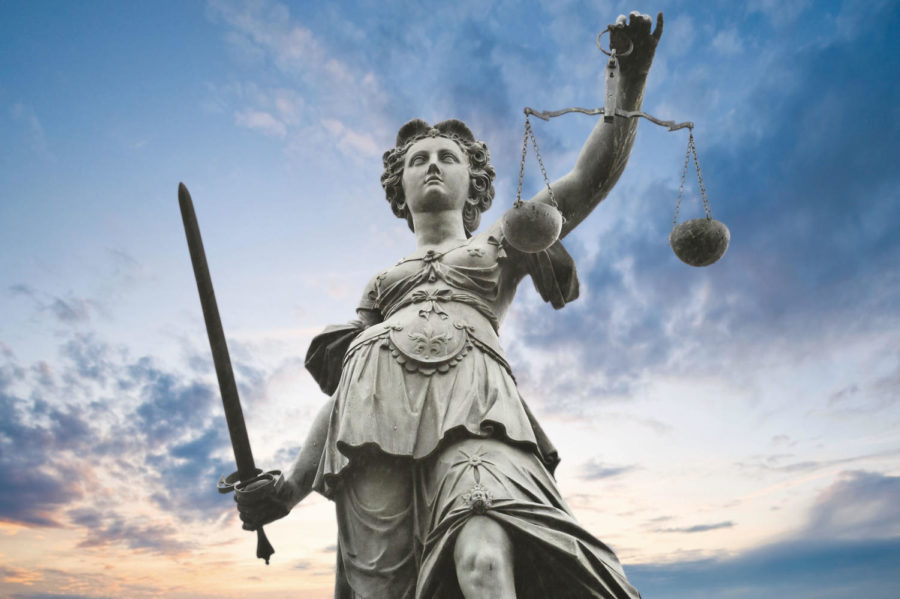Snell: Rights exist without formalities of legal documents such as Bill of Rights
Opinion – Justice
March 26, 2012
Our Bill of Rights, written by James Madison, reveals just how forward-thinking the founders were. During the Constitutional Convention in 1787, the congress of the founders roughly split into two intellectual halves: the Federalists and the Anti-Federalists.
These weren’t political parties as we understand them today, nor rigid ideologies. The argument between the Federalists and Anti-Federalists was about the powers of the federal government versus the powers of the states and the rights of the people. No one had ever created a government like ours before, so being men of the Age of Enlightenment, these were naturally points of contention.
The founders were trying to create the most just form of government that would endure eternally, after all. This was important stuff to work out.
The original plan at the Constitutional Convention was to create a document establishing the form and function of the central government. The former colonies were operating under the Articles of Confederation at the time, which provided so little central power that the new states were constantly squabbling with each other. Conflicts arose out of issues such as which state should do what or who was going to pay for it.
The creation of a central government powerful enough to control matters affecting multiple states was fine. But, citing history, the founders pointed out the eventual pursuit of all governments is the acquisition of more power. George Washington warned us succinctly: “Government is not reason; it is not eloquent; it is force. Like fire, it is a dangerous servant and a fearful master.”
Anti-Federalists argued Washington’s point: A government powerful enough to regulate the business of the new states was certain to acquire power enough to infringe upon the sovereignty of the states and the individual. The Anti-Federalists therefore argued the Constitution required a section clearly spelling out the basic rights of the people and restricting the central government from infringing upon them.
That might seem obvious today, but in the late 18th century, people had common sense, and the Federalists argued logically that such a list of rights was unnecessary: Of course we all have rights, everybody knows that. Thus it is a waste of time to spell them out. If the government is to be composed of the people and the people know their rights, why bother?
Pessimistic, the Anti-Federalists refused to place faith in the government and the education of a future people not yet born, eventually telling the Federalists that they would not sign and ratify the Constitution if such a list of rights was not put into it. The Federalists conceded, and a deal was struck: If the Anti-Federalists signed the Constitution, the Federalists promised to help them write a list of rights and would ratify them as amendments to their Constitution.
It’s amazing to comprehend in today’s political climate, but the Federalists were good to their word. Two years later, in 1789, the Federalists and Anti-Federalists signed into law what became known as the Bill of Rights. This is perhaps the most significant political compromise in American history. Today, while we may not know the scope of our rights very well, we still hear about them constantly. Had our Founding Fathers not reached a compromise in the Bill of Rights, just imagine how much different the argument about our rights would be now.
The Bill of Rights doesn’t invent or grant rights to people. You are born with your rights and no one can take them away from you. But the founders — Federalists and Anti-Federalists alike — were gravely worried about the thought that a government, or worse yet a riled people acting under passion, would pass laws or act some way to infringe upon your natural rights. Therefore your rights needed legal protection.
Your rights are real. They don’t come from the government, they come from God or nature or whatever higher power is out there. You have rights simply because you are alive. The founders equated freedom and life, and an assault against your rights was an assault against your life. This is a powerful idea; give it thought.
Today, the discussion of our rights has been reduced to dry, almost mathematical, discussions. We don’t view our rights as real things, as divine gifts worthy of dying for, as the founders did. Today, they are words on a paper, battled over by lawyers and the proverbial fat, rich white guys sitting in an opulent room governing we lowly people from upon high.
The founders took great pains to ensure that your real, living, breathing rights were forever protected by law. But the founders also handed you a responsibility with that protection: Only you and you alone can truly protect and assert your rights.
When someone talks about restricting the rights protected in the Bill of Rights, they’re not talking about changing some silly ol’ statute, they’re talking about restricting your natural rights. Your rights act as a team. When one is infringed, even the ones you don’t like, all the others are diminished too. You can’t be selective about your rights.
Remain vigilant and never give up. The founders fought hard to protect your rights. Don’t forsake your responsibility as the caretaker of citizenship.







